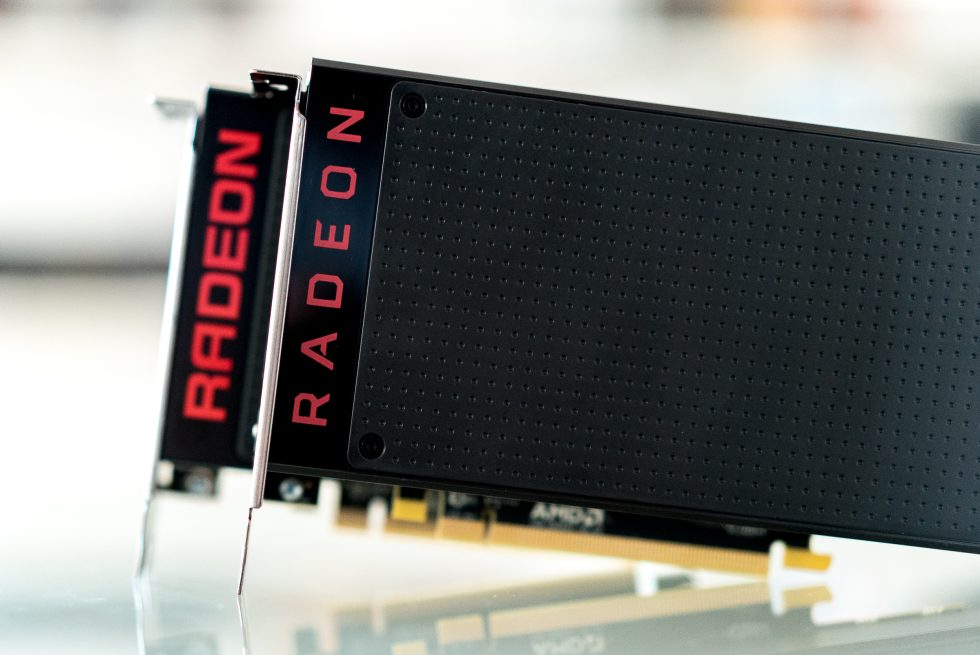
I love a good PR stunt or outlandish claim as much as the next guy. You know the type—where a company decides that the best way to tell people about a new product is to slaughter a few goats and serve fake entrails up to guests or to declare that a certain developer is going to make you his bitch. Imagine my delight, then, when AMD's Raja Koduri took to the stage during the unveiling of the RX 480 to say that, with two of them in Crossfire, they were faster than Nvidia's GTX 1080 and would cost far less. Everyone was intrigued.
Here's the thing about making bold claims involving competitor products, though: you'd better be damn sure those claims stand up under scrutiny. Sooner or later, someone will actually test it.
With the RX 480 in shops and the initial batch of press reviews near universally declaring it an excellent graphics card for the budget-minded gamer (something I agreed with too), it's time to put AMD's bold claims to the test. Are two AMD RX 480s faster than a GTX 1080?
In a word: no. In fact, they're not even faster than a GTX 1070 in many games. To be fair to AMD, though, the company only ever said that two RX 480s were faster than a GTX 1080 in one game, under specific settings. So let's start with that one.
According to a Reddit AMA with AMD's Robert Hallock, AMD ran version 1.12.19928 of the game Ashes of the Singularity under DirectX 12 at 1080p and multi-GPU enabled with crazy settings, 8X MSAA enabled, and v-sync off during its benchmark. Hallock also detailed the system specs, which included an Intel i7 5930K, 32GB of 2400Mhz DDR4 memory, and Windows 10 64-bit.
The result? According to AMD, Ashes of the Singularity ran at 62.5FPS on the AMD cards and 58.7FPS on the GTX 1080.
While I can't replicate the exact same setup as AMD during its testing—I have a newer version of the RX 480 driver, for instance—I can get pretty close. The Ars UK test system just so happens to be based on a 5930K processor with 32GB of DDR4 memory. I even have access to the same Nvidia beta driver. With that in mind, I ran the benchmarks on the GTX 1080 several times using both the old driver and the new driver, the latter to better represent the experience consumers have with the Nvidia card right now.
The result on the Ars UK rig? 55.2FPS to the dual RX 480s and 57.2 to the GTX 1080. So it's close—very close. But no matter how much I tried, I couldn't get the dual RX 480 setup close to the 62.5FPS figure that AMD quoted during its stage presentation. Weirdly with the newer Nvidia driver, its score actually goes down, this time to 54.9FPS. It effectively matches the frame rate of the RX 480.
Either way, while buying two RX 480s and running them together in a very specific setup might get you close to GTX 1080 performance, they're aren't faster.
How does dual RX 480s fare in other tests?
Widening out the dual RX 480 tests to include Crossfire in other games and benchmarks throws up some interesting results. Again, to be clear, AMD never claimed that two RX 480s would be faster than a GTX 1080 in anything other than Ashes of the Singularity, but it is interesting to see Crossfire performance nonetheless. In 3DMark, for instance, the dual 480s are five percent slower than a single GTX 1080, the gap shrinking slightly to just over two percent at 4K. In Metro Last Light, the RX 480s are 17 percent slower than a GTX 1080 at 1080p, with the gap shrinking to around five percent at 4K.
While my second RX 480 had to be sent back to the publication I borrowed it from before I could conduct more tests (thanks, guys!), the folks over at TechPowerUp also managed to pull together some Crossfire benchmarks. It found that while the RX 480 fared well in certain games, on average it was much slower than a GTX 1080 and just slightly slower than a GTX 1070. Given that the 1070 costs roughly the same as a pair of 4GB RX 480s, buying them outright isn't a particularly good idea.
Buying a single RX 480 now and adding another at a later date is an option, but running two cards is nearly always the inferior solution to a single, more powerful GPU. Not all games support Crossfire or SLI, and even those that do don't necessarily scale that well.
This was to be expected, of course. While it's nice to see higher scores in 3DMark when running more than one graphics card, the reality has always been much messier. Games have to be developed with multiple GPU support in mind, and the vast majority aren't. DX12 promised that we'd be able to play games with any combination of graphics cards, but that too has gained little traction with developers.
Ultimately, the lesson is this: always take company claims with a pinch of salt, and if you are looking to promote a product, you can't go wrong with a bit of blood and guts. If nothing else, you'll get Daily Mail readers talking.
Listing image by Mark Walton
reader comments
136